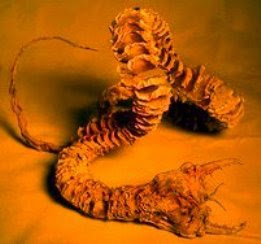 232 years ago, a Scottish Gentleman wrote a tome, which is still enlightening, relevant and forward looking.
232 years ago, a Scottish Gentleman wrote a tome, which is still enlightening, relevant and forward looking. Here in Malaysia, we still have an artificial, skewed economy in which many daily necessities are subsidised, and thus these are unrealistically low priced.
Some think that this is beneficial, but it fact it is detrimental, unhealthy and oppressive.
If wages were fair and equitable everyone could afford to buy goods and services at the market price.
Malaysia needs someone with the foresight and wisdom of Adam Smith - picture to the left- (born 1723, died 1790) to rejuvenate and regenerate the economy into a free market economy, and not as it is now a patronisingly pathetic subsidy orientated one.
Below is a brief outline of Adam Smith’s great work.
An Inquiry into the Nature and Causes of the Wealth of Nations is the magnum opus of Scottish economist Adam Smith; it was first published on 9th March 1776, during the period known as the Scottish Enlightenment
It is a clearly written account of political economy at the dawn of the Industrial Revolution, and is considered by many to be the first modern work in the field of economics
The work is also the first comprehensive defence of free market policies; it is broken down into five books, contained in two volumes.
The Wealth of Nations was written for the benefit of average educated individuals of the 18th century, rather than for economic specialists, mathematicians, or academics
There are three main concepts which Adam Smith expounds upon and these form the foundation of free market economics:
· division of labour,
· pursuit of self interest, and
· freedom of trade.
An Inquiry into the Nature and Causes of the Wealth of Nations
Contents:
Introduction and plan of the work
Book I:
Of the Causes of Improvement in the productive Powers of Labour, and of the Order according to which its Produce is naturally distributed among the different Ranks of the People
- Chapter 1: Division of Labour
- Chapter 2: The Principle which gives Occasion to the Division of Labour
- Chapter 3: That the Division of Labour is Limited by the Extent of the Market
- Chapter 4: Origin and Use of Money
- Chapter 5: The Real and Nominal Price of Commodities, or of their Price in Labour, and their Price in Money
- Chapter 6: The Component Parts of the Price of Commodities
- Chapter 7: The natural and market Price of Commodities
- Chapter 8: The Wages of Labour
- Chapter 9: The Profits of Stock
- Chapter 10: Wages and Profit in the different Employments of Labour and Stock
- Chapter 11: The Rent of Land
Book II:
Of the Nature, Accumulation, and Employment of Stock
- Chapter 1: The Division of Stock
- Chapter 2: Money considered as a particular Branch of the general Stock of the Society, or of the Experience of maintaining the National Capital
- Chapter 3: The Accumulation of Capital, or of productive and unproductive Labour
- Chapter 4: Stock lent at Interest
- Chapter 5: The different Employment of Capital
Book III: Of the different Progress of Opulence in different Nations
- Chapter 1: The Natural Progress of Opulence
- Chapter 2: The Discouragement of Agriculture in the Ancient State of Europe after the Fall of the Roman Empire
- Chapter 3: The Rise and Progress of Cities and Towns, after the Fall of the Roman Empire
- Chapter 4: How the Commerce of the Towns contributed to the Improvement of the Country
Book IV:
Of Systems of Political Economy
- Chapter 1: The Principle of the commercial, or mercantile System
- Chapter 2: Restraints upon the Importation from foreign Countries of such Goods as can be produced at Home
- Chapter 3: The extraordinary Restraints upon the Importation of Goods of almost all Kinds, from those Countries with which the Balance is supposed to be disadvantageous
- Chapter 4: Drawbacks
- Chapter 5: Bounties
- Chapter 6: Treaties of Commerce
- Chapter 7: Colonies
- Chapter 8: Conclusion of the Mercantile System
- Chapter 9: The Agricultural Systems, or of those Systems of Political Economy, which represent the Produce of Land, as either the sole or the principal Source of the Revenue and Wealth of every Country
Book V:
Of the Revenue of the Sovereign or Commonwealth
- Chapter 1: The Expenses of the Sovereign or Commonwealth
- Chapter 2: The Sources of the General or Public Revenue of the Society
- Chapter 3: Public Debts
'Slainte, here's tae ye' to Adam Smith






























